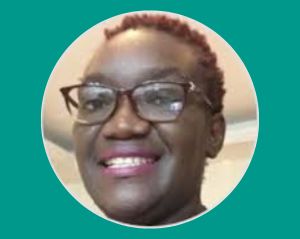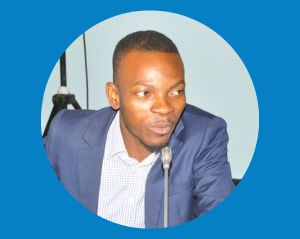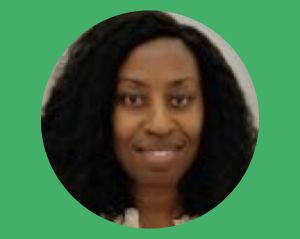START recently caught up with three former African Climate Change Fellowship Program (ACCFP) fellows to see what they are working on now. Keep reading to find out!
 |
 |
 |
| Name: Chipo Plaxedes Mubaya
Current institution: Chinhoyi University of Technology Title: Director,Internationalisation and Strategic Partnerships Country: Zimbabwe |
Name: Mahugnon Serge Djohy
Current institution: Climate Analytics Title: Consultant Country: Cape Verde |
Name: Mzime Ndebele-Murisa
Current institution: START International Title: Program Specialist Country: Zimbabwe |
| 1. What are you currently working on with START? |
||
| I am currently supporting capacity development activities as a Consultant Capacity Development Specialist on the UNI-LEAD project that START is executing. | I am currently an Institutional Strengthening Specialist for the UNI-LEAD project, working to strengthen endogenous capacities of Least Developed Countries to Access Finance for Climate Change Adaptation. | I am chiefly responsible for managing the Education Partnerships for Innovation in Cities (EPIC-N) program as the EPIC Africa regional coordinator and for the EPIC Africa Network. As a START program specialist, I also have strategic responsibilities which include contributing to designing, implementing, and evaluating the organization’s diverse programmatic portfolio. This is through science capacity development, training programs, partnership outreach, and regional representation on behalf of START in Africa. |
| 2. What excites you most about this work? | ||
| This opportunity has opened a window for me to continue with capacity development work, which was initiated under ACCFP and other related activities that START implemented in Africa, particularly Eastern Africa, more than a decade ago. In addition to the excitement of engaging once again with START, where my career path was defined, this work is once again an opportunity to grow my networks in Africa and beyond, and ultimately contribute to the development of capacity for African institutions. |
I am excited about the opportunity to work at the intersection of science and public policy on climate adaptation financing. The project is building the bridge for a dynamic science-policy interface to be a core instrument to support well-informed, adaptation-related decision making to achieve scaled-up and effective adaptation by fostering sustained endogenous technical services for project development, policy mainstreaming, and creation of an enabling environment for adaptation to climate change. | The fact that I get to apply my scientific knowledge in a practical way to foster learning, collaboration, community engagement, and trans-disciplinarity is quite exciting. The programs that I work with offer a golden opportunity to engage a diverse community that includes learners (students), researchers, and especially early career researchers and instructors as well as practitioners and decision-makers. My work with START provides a unique interface for science, policy, and practice which is START’s approach to working with communities in the sustainability and trans-disciplinary space. |
| 3. Do you think the connections made and lessons learned during your ACCFP fellowship are still relevant for your work today? | ||
| Absolutely! ACCFP was about developing the capacity of early career researchers in climate change adaptation research and practice. I have generally found that my experiences in this process are relevant to the current work, which is also about capacity development, albeit targeted more broadly at African institutions in engaging government partners in how to access climate finance. The connections I made during ACCFP remain important for advancing the training that the current UNI-LEAD project is focused on, as some of the people I worked with at the time are part of the current project! | There is a direct connection between my ACCFP fellowship and the UNI-LEAD work. Indeed, as an ACCFP Policy Fellow, my work was focused on investigating practices for designing and implementing locally-led adaptation projects in Benin’s strategic sectors of development. The experience and lessons learnt from my ACCFP fellowship are now used in my role under UNI-LEAD to foster institutional collaboration in a very complex system to conduct adaptation policy mainstreaming and to facilitate access to climate finance for adaptation. | Absolutely; the connections and lessons learned during my ACCFP fellowship have been invaluable and still work to date. My first genuine network and networking experience were through the ACCFP fellowship and community. This is because I continued to interact with the group beyond the fellowship and also beyond the cohort through START’s Advanced institutes and a few follow-up projects like FRACTAL, CORDEX Africa, CIRCLE, and AfriCLIP with other ACCFP fellows. One of the valuable lessons that I learned and continue to apply is that there is a lot more beyond disciplinarity and this has helped me to work in multi- and trans-disciplinary spaces as well as to apply knowledge beyond limited audiences. |
| 4. What are you looking forward to in the next few months, professionally or personally? | ||
| In the next few months, I look forward to participating in the UNI-LEAD PMU efforts to first of all develop training material and conduct face to face training for LUCCC member institutions, as well as make an input into the development of a concept for a potential successor project. It would be great to carry forward the work that has been initiated in the current project and has great scope to contribute further to the growth of think tanks across LUCCC institutions on the project and beyond! | I look forward to establishing the think tanks within the Least Developed Countries Universities Consortium for Climate Change (LUCCC) universities to start providing technical assistance to governments in the respective countries to strengthen their capacities to access finance for climate change adaptation. | I am anticipating the growth of the EPIC Africa network and I am pleased that we have great momentum and support from partners that we work with. I am also looking forward to participating in EPIC-N refresher training across a few African cities and conferences such as the Sustainability, Research, and Innovation (SRI) 2023 Congress, Adaptation Futures, and the WRCP’s Open Science Conference, all of which are still open for registration. I am also generally excited about continuing to work with our partners and continuing to make a difference in climate adaptation and mitigation. |


